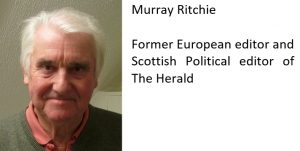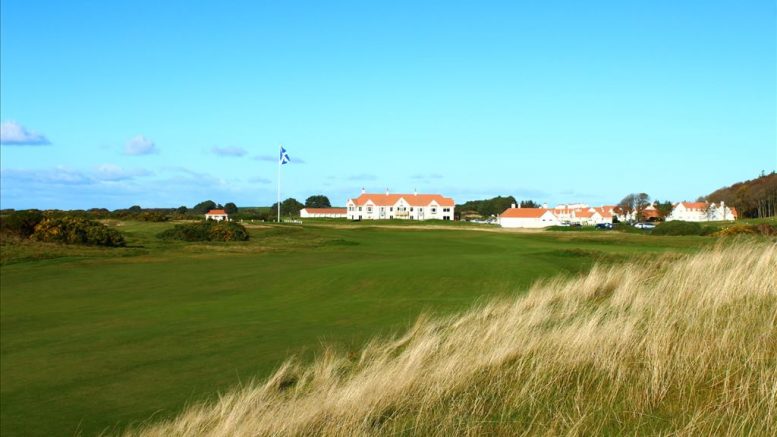When you publicly condemn Donald Trump’s views as “deeply abhorrent” and tell him “you’re fired” and then your phone goes, you could be forgiven for worrying when you hear the words: “The president elect is on the line and wants to talk to you”.
That is in effect what happened to Scotland’s First Minister Nicola Sturgeon when the US president elect called her last week to talk about Scottish-American relations. By all accounts – well, by accounts spun by spokespersons on both sides of the Atlantic – the conversation was surprisingly friendly.
Trump is half Scottish – his mother emigrated from the Isle of Lewis to the US – and he has major investments in Scotland in the form of two golf courses, one of which has the reputation of being as magnificent as it is controversial.
This course, in the north-east, attracted years of fierce opposition from the environmental lobby while golfers (those who can afford the green fees) adore it. But Trump has become a hate figure among many locals who accuse him of riding roughshod over their views and ignoring planning law.
Having been persuaded by a Scottish former first minister, Jack McConnell, a keen golfer, to invest in the Scottish golf industry, Trump soon found himself at war with another equally keen golfer, McConnell’s successor, Alex Salmond.
Trump launched a bitter feud with Salmond for allowing wind turbines situated offshore at the course. He denounced Salmond as an “embarrassment to Scotland”. Salmond responded by accusing Trump of being a crackpot for sending him a stream of “green ink” notes by courier in protest at “ugly windmills” spoiling the view from his fairways.
Salmond and Trump are no longer on speaking terms and attack each other now by press release. It seemed Nicola Sturgeon’s relationship with the mogul-cum-president elect was about to sink into a similar slough of animosity, especially after she denounced his views on Mexicans and Muslims as deeply abhorrent. For good measure she made a show of sacking him a year ago as an ambassador for Scottish business in the US.
But Trump is never predictable. He has shown how he can suddenly talk warmly of opponents he has lacerated in the heat of political debate as he did with Hillary Clinton once she had been vanquished. Sturgeon, unable to avoid having some sort of civilized accord with the world’s most important leader, dropped him a note of polite congratulation on his victory. Restoring the diplomatic niceties must have made her squirm. And then, out of the blue, came the phone call from the States.
Trump is known to have a strong sentimental attachment to Scotland through his late mother and an even greater attachment to the millions he has invested there (he has also bought the Open golf venue at Turnberry and its famous hotel on the Ayrshire coast).
It can’t have helped the conversation that Sturgeon snubbed Trump by declining his invitation to attend the formal reopening of the Turnberry complex.
We don’t have a transcript of the exchanges with Sturgeon. The unknown factor is whether Trump might consider expressing some sympathy for Scottish independence which he opposed in the past. President Obama and Hillary Clinton both spoke against during the independence referendum debate, angering Sturgeon and Salmond and damaging their Yes campaign.
Whether Trump’s loss-making investments in the home of golf might encourage him to soften his opposition is now a matter of speculation. He could certainly use a rapprochement with the Scottish government – or at least less hostility in high places provoked by his contempt for Scottish planning law. And he does describe himself as a deal-maker.
Then there is the question of whether Trump backing independence would even be welcomed by Yes voters in a second independence referendum, given his reputation as a divisive maverick with a big mouth.
He said he will be visiting Scotland again. We might not have long to wait to find out.
By Murray Ritchie

Featured Image © Copyright Billy McCrorie
and licensed for reuse under this Creative Commons Licence




